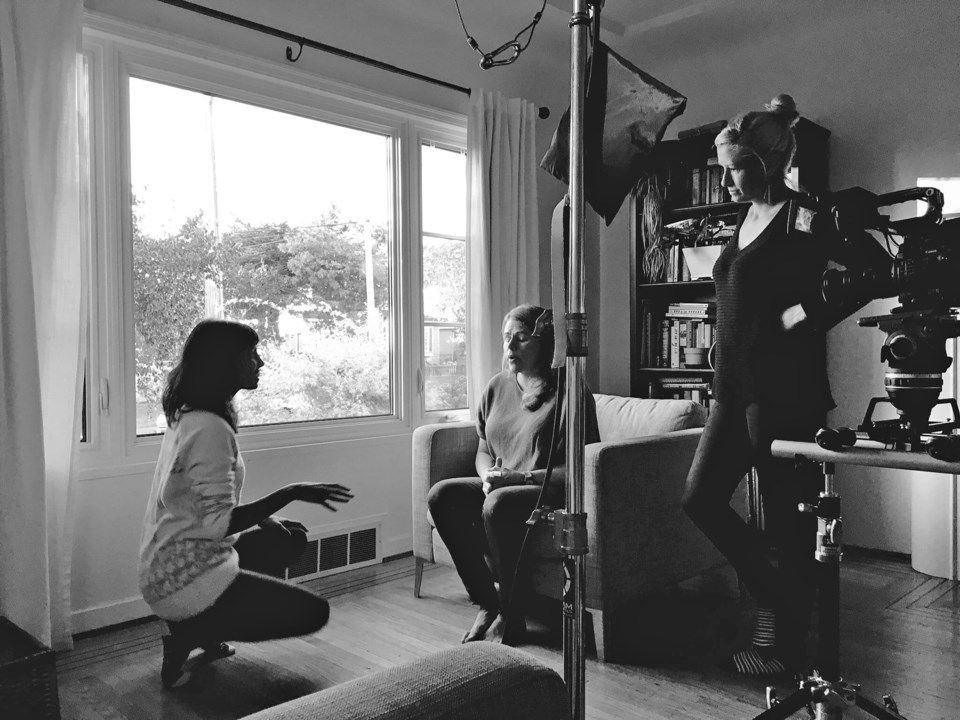It wasn’t until Nimisha Mukerji began working on a documentary about Crohn’s Disease that she realized how prevalent it is in Canada – and how reluctant we are to talk about it.
The Vancouver filmmaker describes herself as knowing very little about inflammatory bowel diseases (IBDs) before she began work on her new short film, Eat Your Heart Out: Diary of a Crohn’s Patient. “As soon as I started telling people what I was doing, suddenly all of these people said they knew someone or had a friend of a friend who had it,” says the filmmaker, whose growing list of documentary credits includes last year’s festival hit Tempest Storm (about the grand dame of the Vegas burlesque scene) and 2009’s juggernaut 65_RedRoses, which offered an uncensored look into the late Eva Markvoort’s life as she awaited a double-lung transplant (and launched Oprah Winfrey’s Doc Club in 2011).
Canada has one of the highest rates of IBDs in the world. One person in every 150 is affected by a bowel disorder, while one British Columbian in three is diagnosed with an IBD like Crohn’s Disease and ulcerative colitis every day. Despite the prevalence of IBDs like Crohn’s, they’re “not something that is talked about,” says Mukerji.
With Eat Your Heart Out: Diary of a Crohn’s Patient, Mukerji pulls back the curtain on this rarely discussed disease by casting her lens on a Vancouverite – Erin Cullingworth – whose life has been profoundly impacted by an IBD.
The short (which was produced for Real Life Stories, a documentary series that strives to raise awareness about chronic medical conditions) begins with Cullingworth revealing via voiceover that she “can’t believe I spent two years of my life only eating yogurt,” and offers a crash course in the realities and frustrations of a seemingly unrelenting autoimmune disease that attacks healthy tissue in the digestive tract and can lead to a vicious cycle of inflammation, vomiting, scar tissue, obstructions, diarrhea, surgeries and shame. There is no cure at this time.
In Cullingworth, Mukerji – who was nominated for four 2017 Leo Awards for We Were Hunters, a black and white documentary short about big game hunting – found a Canadian who was willing to stare down the camera and talk about her challenges navigating a sometimes-unhelpful medical system, her surgeries, pregnancy, and remission, and her complicated relationships with food and shame. “What I found so compelling about Erin was that she was willing to talk about it,” says Mukerji. “Unless people talk about it, the stigma will remain. There’s nothing to be ashamed about.”


